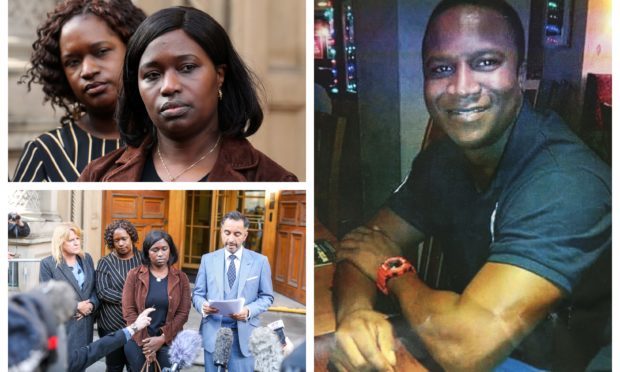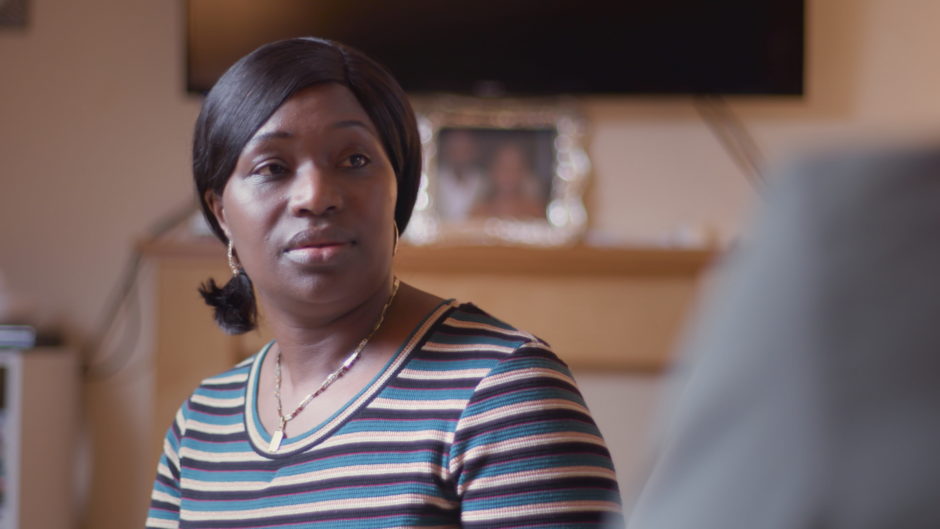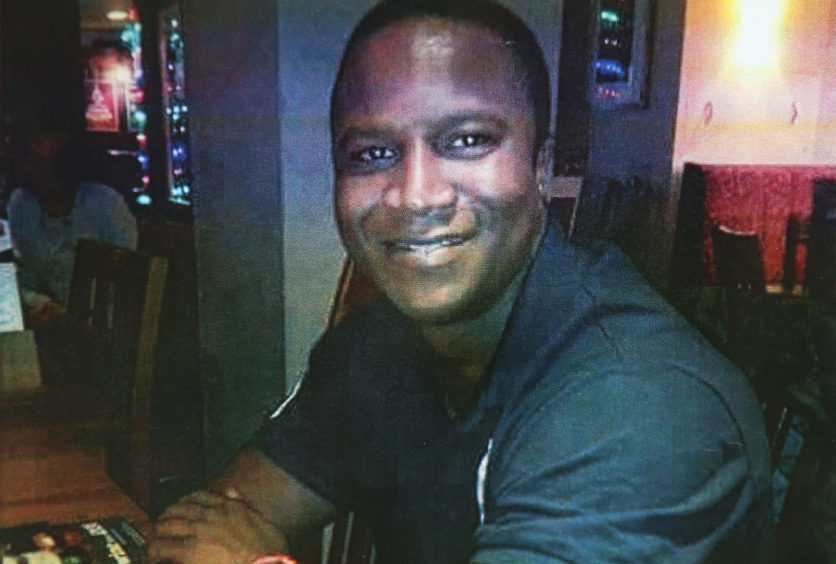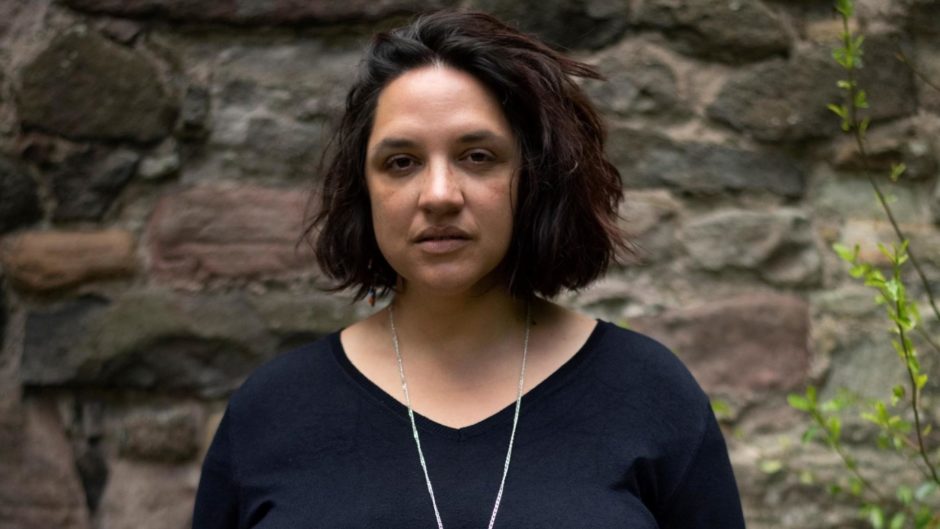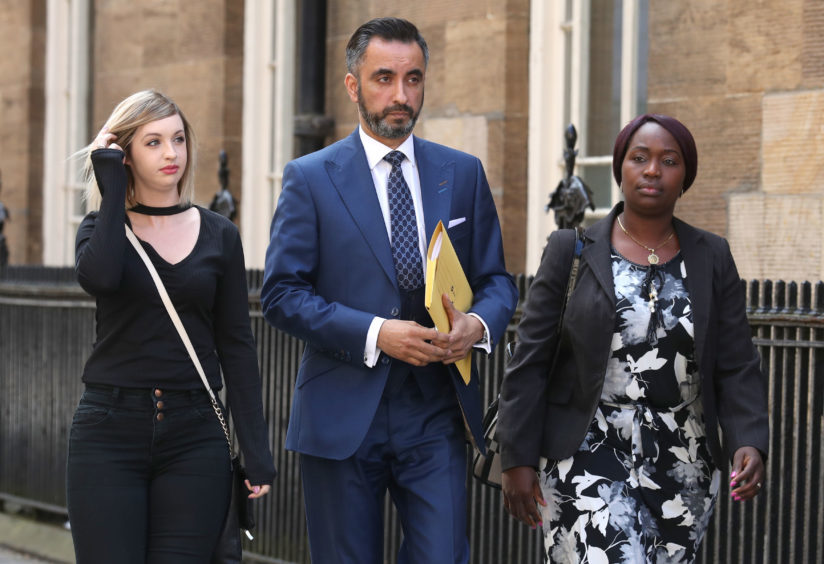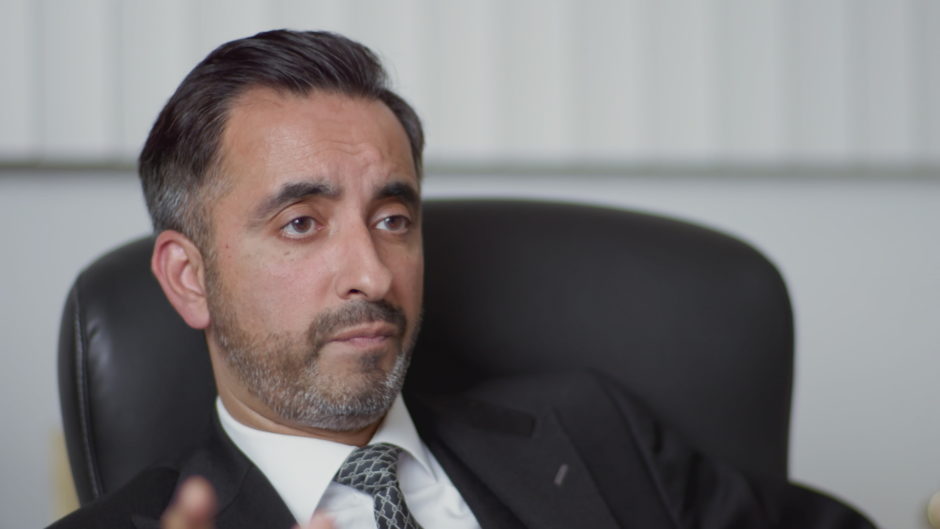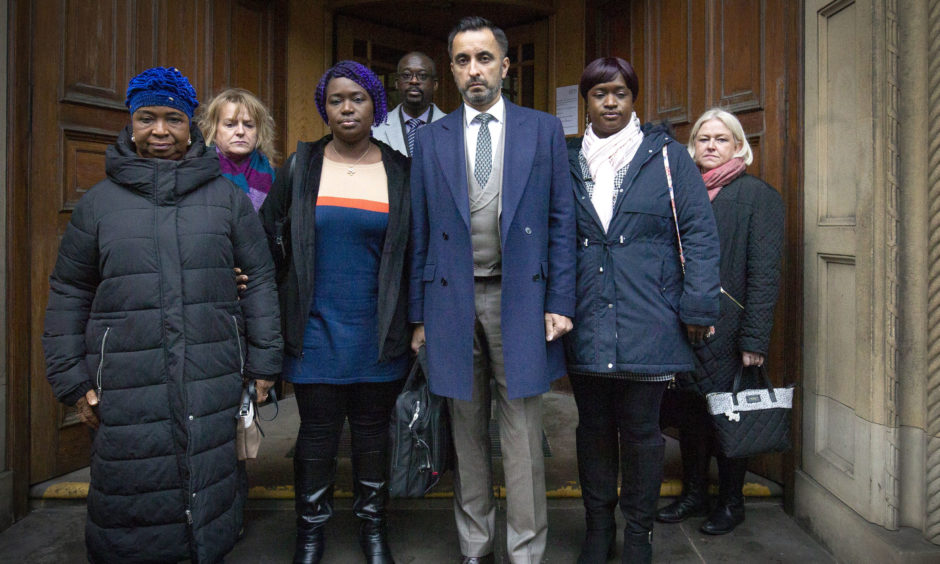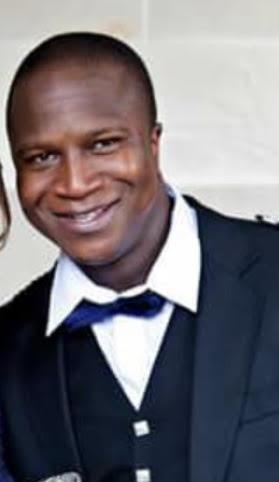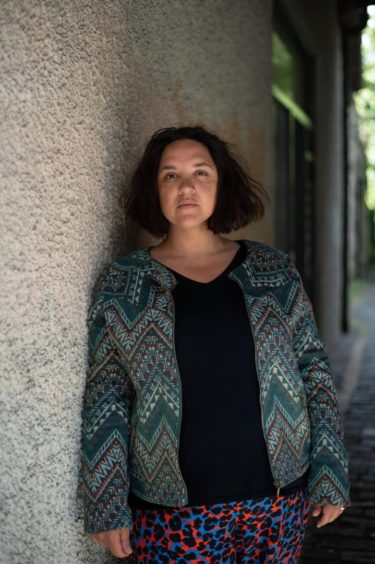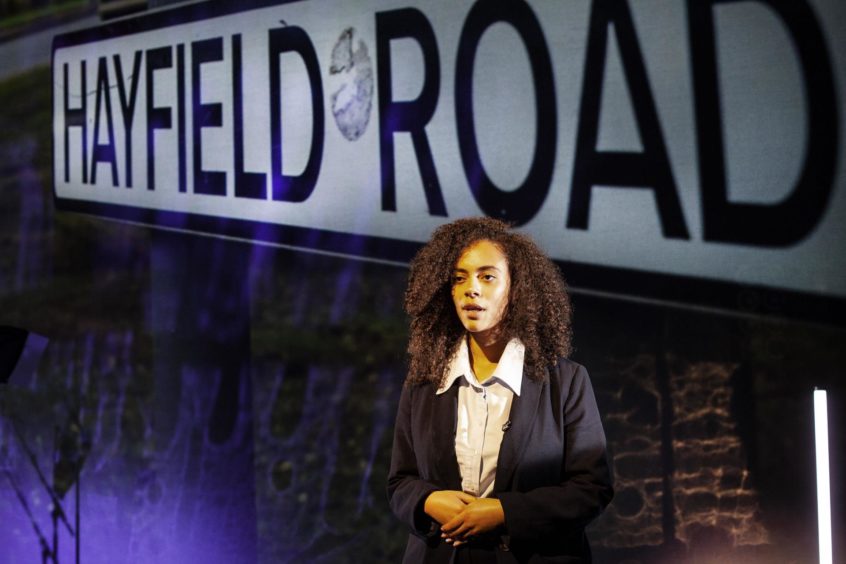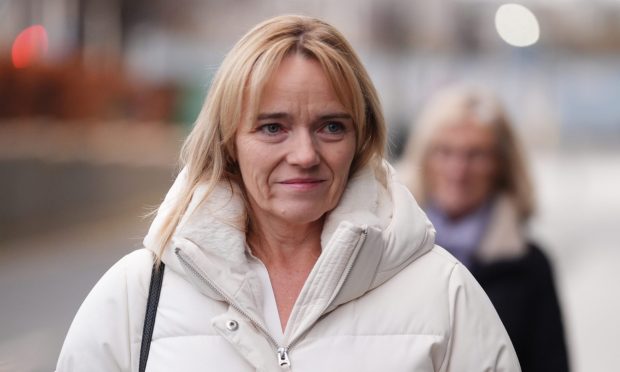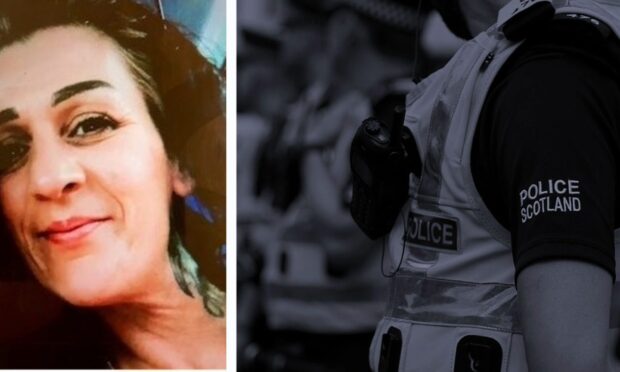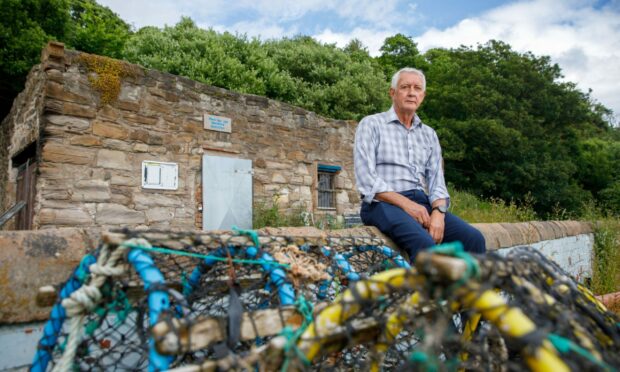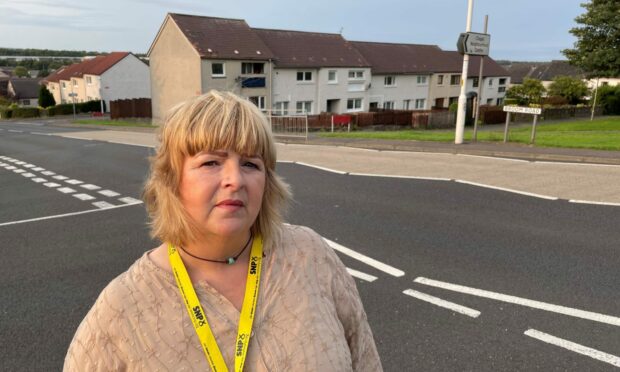The sister of Sheku Bayoh says the pain of her brother’s death will “live on forever” after watching a play about his death in police custody.
Kadi Johnson thanked the team behind Lament for Sheku Bayoh for putting on such an “amazing play” that was “brilliant, amazing and captured the emotional side” for the whole family as well.
However, with a public inquiry due to start more than five years after her brother died being restrained by police officers in Kirkcaldy, she says the whole family is still waiting for justice.
Kadi spoke at a webinar called The Mythologizing of Black Men: Representation, Reality and What’s At Stake?
The online discussion was held following the weekend streaming of Lament for Sheku Bayoh – a National Theatre of Scotland, Edinburgh International Festival and Royal Lyceum Theatre Edinburgh co-production.
Kadi said of Hannah Lavery’s play: “It’s such an amazing thing.
“For the first five years it captured how we are feeling, how we felt from the start until now.
“It showed exactly how Sheku was as a fun loving guy who loved his friends and family and embraced Scottish culture.
“It’s hard going for us as a family. It’s over five years now waiting for answers.
“We are asking ‘where’s the justice? When will we have justice?’ We just want to know the truth of how our brother died.
“It’s a battle we are still fighting five years on.
“For him to be taken away so soon – the pain will live on forever.”
Mr Bayoh, a 31 year-old gas engineer, husband and father of two, died after being restrained by police officers in Kirkcaldy on May 3, 2015. He had traces of drugs in his body when he died.
Lord Advocate James Wolffe confirmed that no officers would be prosecuted in relation to the death.
However, it was later announced a public inquiry would be held, and that it would examine whether race played a part in Mr Bayoh’s death.
Police Scotland has said it will “engage fully” with the inquiry and was committed to providing a service based on “integrity, fairness and respect”.
Writer and director Hannah Lavery described Lament for Sheku Bayoh as a “personal response to the tragedy, an expression of grief for the loss of the human behind the headlines and a non-apologetic reflection on identity and racism in Scotland today”.
Performed on the Lyceum theatre’s stage and streamed to audiences at home, Lament for Sheku Bayoh asks, is Scotland really a safe place?
The post-streaming panel was chaired by Clementine E. Burnley (public storyteller and community worker) and included: Deborah Coles (director of Inquest), May Sumbwanyambe (Scottish playwright and academic) and Courtney Stoddart (poet, performer and activist).
There were also contributions from Hannah Lavery (writer and director of Lament for Sheku Bayoh) and leading human rights lawyer Aamer Anwer (Bayoh family solicitor).
‘THIS IS WHAT HAPPENS TO BLACK BOYS WITH BIG MOUTHS’
Aamer Anwar has revealed how watching Lament for Sheku Bayoh left him in tears as it captured the “emotion, pain and grief” of the Bayoh family’s fight for justice over the past 5.5 years.
Mr Anwar, who is the Bayoh family solicitor, and who was also recently interviewed by The Courier, said the play was “incredibly powerful” and “summed up all the feelings” of the family.
He said it was “well documented” how unarmed black men are often “posthumously stigmatised, vilified and criminalised as soon as they die” and are “portrayed as thugs and criminals to justify their deaths and to shift the blame away from law enforcement”.
However, the play also took him back to his own experience of being assaulted by Strathclyde Police while illegally flyposting as a student in 1991.
An officer bounced his head off the road and smashed his teeth, telling him “this is what happens to black boys with big mouths”.
Speaking at the post Lament for Sheku Bayoh streaming webinar, Mr Anwar, now 52 and a former rector of Glasgow University, said: “People ask how I became involved (in human rights campaigning).
“For me, if I turn the clock back it’s 29 years ago, being a young black male – a person of colour as a student and just flyposting, being attacked by police officers and being dragged into the pavement, having my teeth smashed off the ground.
“My teeth crumbling – and being dragged back into a lane around the corner from Glasgow University. I was laid on the ground and being kicked in the stomach and coming around.
“I’d not long moved up to Glasgow from Liverpool. I’d grown up with the stories of young black men dying in the back of police vans and on the street.
“I grew up with the Toxteth riots – I lived half a mile away from Toxteth. Lying on the ground in Glasgow, I thought ‘tonight I die’.
“I remember when I asked a question (to a police officer) why was I kicked in the face and stomach I was told ‘this is what happens to black boys with big mouths’.”
Mr Anwar successfully took civil action against the force and, four years later, it was found an officer had assaulted him in what appeared to be a racially motivated attack.
The officer was suspended and Mr Anwar was awarded £4,200.
However, in the decades since, Mr Anwar said he has been repeatedly confronted with “racist” cases where attempts are made by law enforcement to stereotype and criminalise.
“They will produce this imagery of a violent, machete carrying individual, who has stereotypical characteristics of extraordinary human strength and dangerousness, and then as time passes you find well actually that’s not true, that’s not true, that’s not true.
“But I think in terms of this discussion what is important is that they take away the humanity of the individual.
“I remember what Sheku’s mum said to me: ‘I want people to think of my only son not as a man who died following a struggle with the police, but she wanted people to remember him’ – and that’s what this play does – that beautiful picture of Sheku with that big smile up there as a bright young man who any parent would have been proud of.
“He was a wonderful son, he was a wonderful brother, he was an uncle, he was a loving partner, he was a loving father to two young boys.
“I think for each family I’ve met over the years as a lawyer, what it’s come down to is that spirit, that duty to fight back.
“The dead can’t answer back so you answer back for them. That’s what the Sheku Bayoh family and their campaign means to me as a lawyer, but also as an activist.”
‘WAKE-UP’ TO RACISM, URGES LAMENT FOR SHEKU WRITER
The acclaimed writer and director behind Lament for Sheku Bayoh has urged Black Lives Matter protestors to harness their energy and “stand with” the family of Sheku Bayoh when a public inquiry into his death is held in Edinburgh.
Speaking at the online webinar discussion held after the streaming of the play, Hannah Lavery, also recently interviewed by The Courier, urged people to “wake up” to the presence of racism in Scotland and hoped that stories, poetry and theatre could help demand greater empathy and understanding between all people.
Hannah said: “There’s good reason why the last images of the play were the Black Lives Matter march at Arthurs’s Seat.
“I think if those people could turn up to the public inquiry, if they could take that energy and that passion that they had at that moment in the middle of the pandemic to go and stand with this family and demand answers, then that is what art can do.
“That is what telling a story can do, and that’s what empathy can do.
“Go and take that energy that took you up that hill or took you to do whatever protest you did with Black Lives Matter – take that and stand with Kadi and stand with the family and stand outside that public inquiry.”
Hannah’s sentiment was shared by Bayoh family lawyer Aamer Anwar who said any suggestion that racism was a “new” story illustrated by the death of George Floyd in the USA was wrong.
The difference was, he said, that while American civil unrest had led to police officers being put on trial in the wake of George Floyd’s death, in Scotland, “five years of struggle had technically delivered no justice” for the Bayoh family.
“I think before we even get to the question of black men being killed,” he added: “we need to remember that if all Black Lives mattered in the US, we wouldn’t see such disproportionate rates of poverty, we wouldn’t see such disproportionate rates of incarceration, of drop outs, of lack of secure housing, of other significant factors that don’t recognise racism. This applies to the UK.
“And if you don’t recognise racism as an ongoing problem it actually exacerbates the situation.
“What this is about is silencing and marginalising those people who are affected by it. If that happens, then we don’t actually start the debate on how you are going to change that society that only sees young black men as thugs or criminals whose lives are negated .
“The police responsibility is to act reasonably, proportionately, and within the law. They do not have the shoot to kill policy in this country.
“I think people in Scotland do need to wake up. Stop looking across the pond to the US and thinking it’s there or it’s down in London when actually in Scotland we have a big job to do.”
